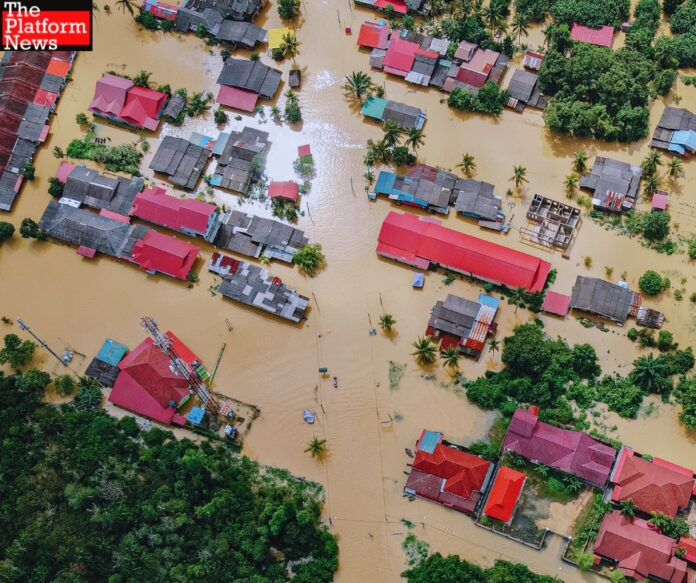The Philippines has been experiencing the tangible effects of climate change, including rising sea levels, prolonged extreme weather, stronger storms, and hotter summers. In response, the government has taken proactive steps to address these challenges both domestically and through international engagement.
Over the years, the Philippines has actively participated in various international treaties and conventions, demonstrating its commitment to global environmental efforts. It has joined agreements like the Vienna Convention for the Protection of the Ozone Layer (1985) and the Montreal Protocol (1987). In 1992, the country signed key agreements such as the Convention on Biological Diversity (CBD), the Ramsar Convention on Wetlands, the Convention on International Trade in Endangered Species of Wild Fauna and Flora (CITES), and the United Nations Framework Convention on Climate Change (UNFCCC). Other significant agreements include the Kyoto Protocol (1997), the Rotterdam Convention (1998), the Stockholm Convention (2001), the Minamata Convention (2013), and the Paris Agreement (2016).
These agreements have facilitated substantial financial support for the Philippines. The country has received $7.28 million (around P400 million) from the Global Environment Facility (GEF), $137.7 million (over P7.5 billion) from the Green Climate Fund (GCF), $13.78 million (over P750 million) from the Adaptation Fund, and $60.51 million (over P3.3 billion) from the Climate Investment Fund, totaling approximately $218.27 million (over P12 billion). This funding has enabled various successful initiatives, such as the National Greening Program (NGP) for reforestation, the Rural Electrification through Renewable Energy Development (RERED) Program for clean energy access, Climate-Smart Farm Business Schools (CSFBS) for climate-resilient agriculture, and the Community-Based Flood Early Warning System (CBFEWS) for disaster preparedness.
Domestically, the Philippines has made significant legislative progress. In 2022, amendments to the Clean Air Act and Clean Water Act demonstrated a strong commitment to environmental protection. The country also updated its international commitments in its 2021 submission of Nationally Determined Contributions (NDCs) to the UNFCCC, outlining ambitious targets for reducing greenhouse gas emissions and enhancing climate resilience. These efforts reflect a proactive approach to integrating climate considerations into national policy and regulatory frameworks.
A landmark development was the Supreme Court’s 2019 “Mandanas-Garcia ruling,” which allocated greater resources to local government units (LGUs). This decision has empowered localities to plan, finance, and implement more comprehensive and effective climate-sensitive initiatives. This decentralization of resources has the potential to significantly enhance the capacity of local governments to address climate change and improve resilience at the community level.
LGUs have taken proactive steps in climate action. For instance, Makati City Mayor Abigail Binay joined the Board of the Global Covenant of Mayors in 2021, an initiative supported by the European Union to address climate change at the city level. In March 2023, the city government of Cebu launched a climate-resilient infrastructure project aimed at mitigating the impacts of extreme weather events. Moreover, during the Philippine Mayors Forum in October 2023, local governments emphasized the importance of abiding by the Sustainable Development Goals (SDGs), highlighting their crucial role in driving community-level change and fostering a more sustainable future.
While challenges remain—such as political instability, resource limitations, corruption, and socioeconomic issues—the Philippines is making notable progress. Frequent leadership changes and the padrino system, where positions are often filled based on patronage rather than merit, have posed obstacles. However, there is a growing recognition of the need for continuity and merit-based appointments. This shift towards stability and competence in governance is crucial for effective climate action.
Socioeconomic issues have traditionally impeded public focus on climate matters, as immediate needs often overshadow environmental concerns. However, rising awareness and educational efforts are gradually prioritizing sustainability. Initiatives to inform and educate the public about climate change are fostering a more knowledgeable and proactive population. This heightened awareness is crucial for generating grassroots backing for climate actions and ensuring lasting success.
The Philippines is demonstrating resilience and adaptability in the face of climate change. The country’s active participation in international agreements, legislative actions, and local initiatives reflect a robust and hopeful approach to building a sustainable future. By bridging the gap between policy and implementation and fostering a unified effort across all levels of government and society, the Philippines is well-positioned to create a resilient and prosperous future for all its citizens.



